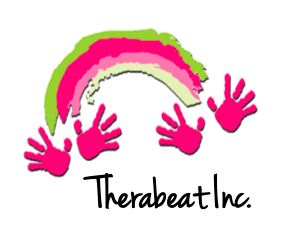What is the Neonatal Intensive Care Unit (NICU)? The NICU is a unit in the hospital for babies who are preterm (born before 37 weeks), have low birth weight (less than 5.5 pounds) or sick babies who need more intensive care. Babies can also be admitted into the NICU if they are not sick, but need specialized nursing care. Other causes for infants to be admitted include the health of the mother during birth such as high blood pressure, what happens during delivery such as fetal distress, or the health of the baby after birth such as low blood sugar. The treatment team in the NICU consists of a neonatologist, neonatal fellow, and pediatric resident. (Stanford Medicine Children’s Health, 2024). The doctors and nurses do a great job in caring for babies in the NICU, but how can music therapy help?
NICU Music Therapy is the use of musical elements by a certified MT-BC to address goals of infants in the NICU (AMTA, 2021). There are many benefits to music therapy being involved during an infant’s stay in the NICU. Benefits include increased parent/caregiver satisfaction, increased cost effectiveness, and increased cultural efficacy (2021). For instance, the AMTA fact sheet talks about increased weight gain and decreased length of stay as a result of music therapy. One of the ways this is achieved by a music therapist using a device called Pacifier Activated Lullaby (PAL) System (2021). The PAL system has a pre-recorded lullaby that is only activated by the sucking motion of the infant. Learning the sucking motion helps the infant feed and gain weight. The result of the infants learning how to feed and gain weight, decreases the length of their stay in the NICU (Cevasco A. & Grant R., 2005). By decreasing the length of their stay, it reduces the cost for both the family and the hospital.
Music therapy can also help the parent/caregiver to bond with their infant. The music used include lullabies and songs related to the culture/tradition of the parents/caregivers. Music therapy also reduces the parents/caregivers stress and boosts their confidence in their parenting skills (Gooding, J. et al., 2011).
Although music therapy is beneficial for infants and their families, there are a few cases in which an infant would not be eligible to receive music therapy. For instance, infants under the age of 28-weeks should not receive music therapy because they are highly sensitive to light and sound. Infants in the NICU are sensitive to environmental factors such as light and sound. They can get overstimulated easily, which can cause their heart rate to increase (AMTA, 2021).
NICU-music therapists bring joy and comfort to both the parents and the infant. Music therapy can reduce the amount of time the infant stays in the hospital, which reduces the parents/caregivers stress. It also can help the infant learn the skill of sucking for feedings and bond with their parent/caregiver through the music of their culture/traditions. If the NICU-music therapist follows the guidelines of the facility and uses their training, they can help many babies in the NICU go home sooner and begin to reach developmental milestones. For more information on other intervention or information on training sites for NICU-music therapy visit www.musictherapy.org.
-Teresa Dominguez, Music Therapy Intern
References:
AMTA (2021). Music therapy and the Neonatal Intensive Care Unit (NICU). American Music Therapy Association. (2024). https://www.musictherapy.org/assets/1/7/FactSheet_Music_Therapy_and_the_Neonatal_Intensive_Care_Unit__2021.pdf
Cevasco, A. & Grant, R. (2005). The effect of the Pacifier Activated Lullaby on weight gain of premature infants. Journal of Music Therapy, 46(3), 273-306.
Gooding, J., Cooper, L., Blaine, A,, Franck, L., Howse, J., & Berns, S. (2011). Family support and family-centered care in the neonatal intensive care unit: Origins, advances, impact. Seminars in Perinatology, 35(1), 20-28.
Stanford Medicine Children’s Health (2024). The Neonatal Intensive Care Unit (NICU). https://www.stanfordchildrens.org/en/topic/default?id=the-neonatal-intensive-care-unit-nicu-90-P02389

